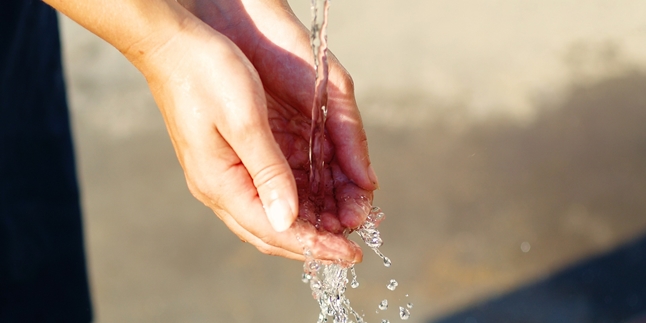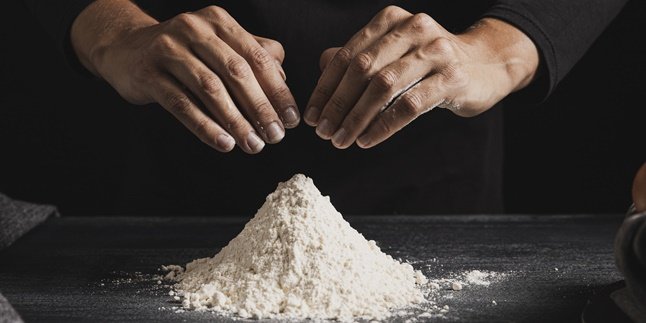Kapanlagi.com - Maintaining purity from impurities when worshiping Allah SWT is a mandatory law, especially when performing prayer or reciting the Quran. And to maintain that purity, you can perform ablution using water, or perform tayammum without using water. However, it turns out that you can't do it carelessly, there are correct procedures for ablution and tayammum according to Islamic law.
Actually, ablution or tayammum is a necessity for Muslims before performing obligatory prayers and sunnah prayers. Because without ablution or tayammum, prayer will not be valid. That's why it is important for Muslims to know the correct procedures for ablution and tayammum. This is so that the body can purify itself from minor impurities.
READ ALSO: One of the Things that Nullify Tayammum, Complete with How to Do It
Even the command to perform ablution or tayammum before prayer is directly conveyed from Allah SWT. The command for ablution is found in Surah Al-Maidah, verse 6, which means:
"O you who have believed, when you rise to [perform] prayer, wash your faces and your forearms to the elbows and wipe over your heads and wash your feet to the ankles".
That's how important ablution or tayammum is for Muslims, so every Muslim should master the proper procedures for ablution and tayammum. Therefore, here are the things along with the procedures for ablution and dry ablution that have been summarized from various sources.
1. Pillars and Recommended Acts of Wudu
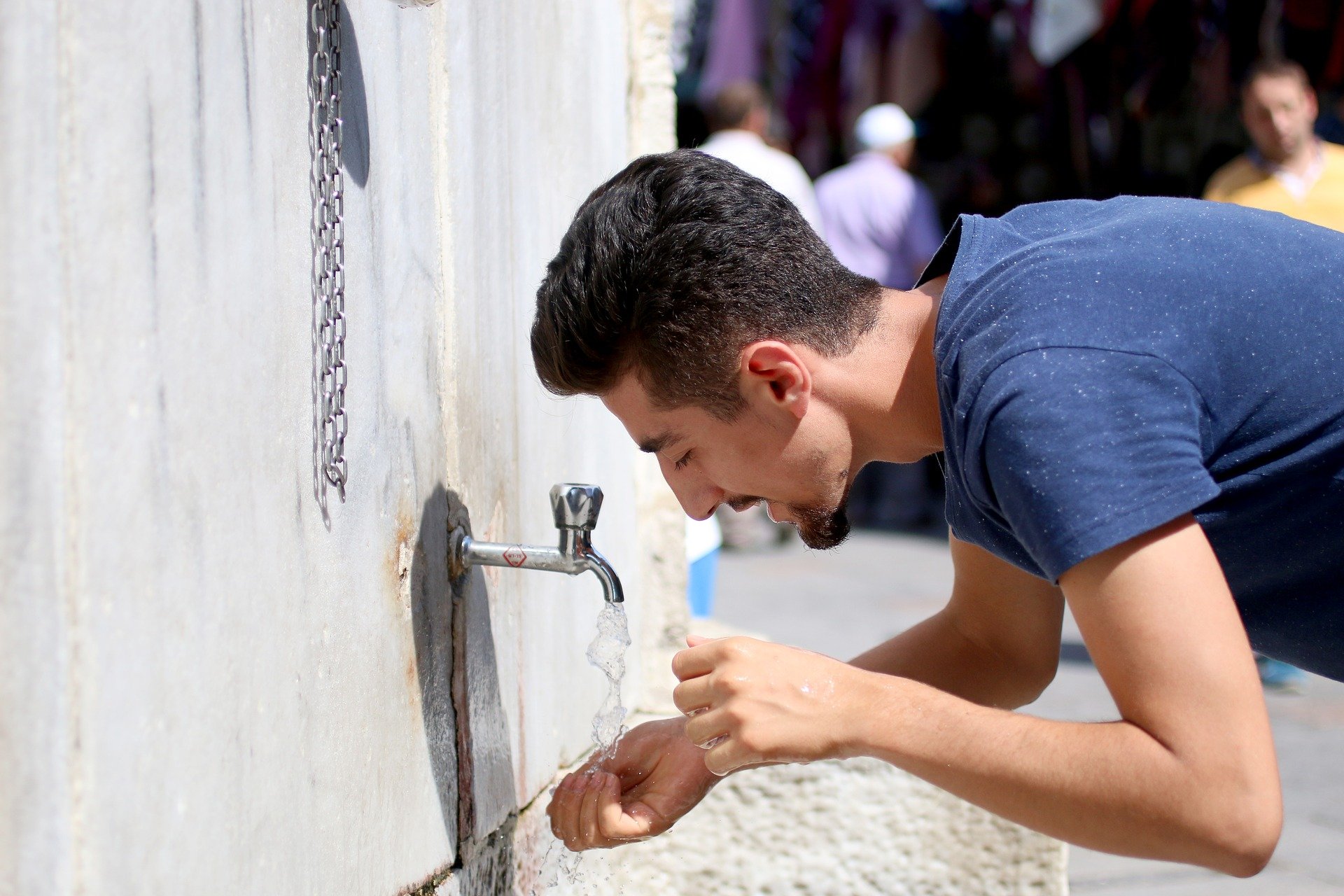
Illustration (credit: Pixabay)
Although wudu is part of the pillars of prayer, it turns out that wudu also has its own pillars KLovers. This means that wudu must be performed according to these pillars and nothing should be missed. Because if something is missed, the wudu will become invalid. The pillars of wudu are as follows:
- Intention
- Washing the face
- Washing the hands
- Wiping part of the head
- Washing the feet
- Orderliness.
In addition to the pillars, wudu also has recommended acts that can be done to increase rewards. Here are some recommended acts of wudu according to the advice of the Prophet Muhammad:
- Washing both palms
- Brushing the teeth with a siwak, then rinsing
- Sniffing water into the nose
- Wiping water over the entire head
- Washing both earlobes
- Prioritizing the right side of the body
- Scrubbing the gaps between the fingers, toes, and beard (if one has a long beard)
- Performing each step three times
- Sequentially without pause
2. Rukun Tayamum
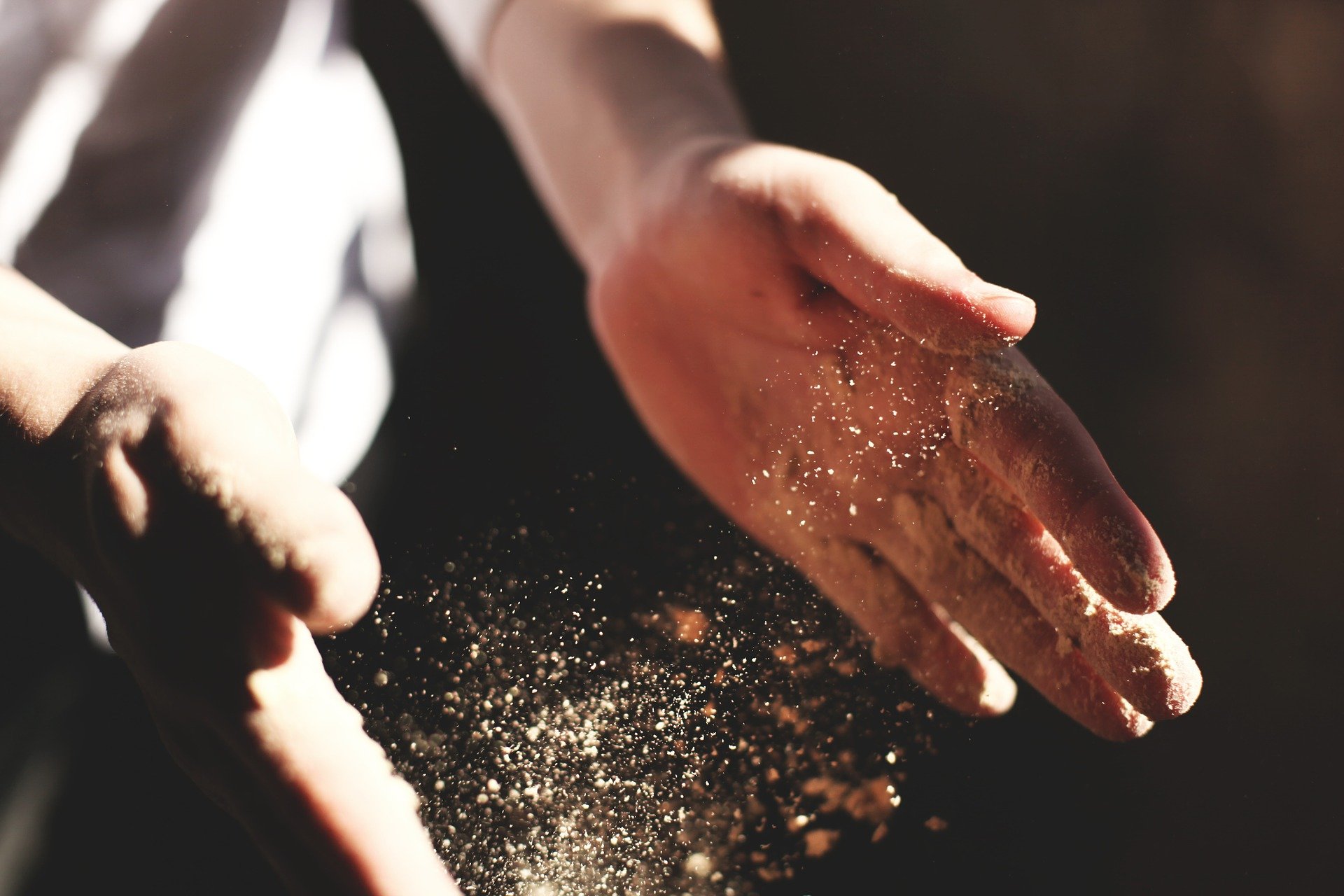
Illustration (credit: Pixabay)
In addition to ablution, tayamum also has pillars of tayamum, or things that must be considered when performing tayamum. Because these things will affect what is right and wrong in performing tayamum. Here are some things to consider when performing tayamum:
- Tayamum can only be done when it is already time for prayer
- If the reason is no water, then before that there must be an effort to find water
- The soil or dust that will be used for tayamum must be clean and soft. Not wet, not mixed with lime, stones, and other dirt.
- Tayamum only applies as a substitute for ablution and major ablution. Tayamum cannot remove impurities.
- Tayamum can only be used for one obligatory prayer. So, it cannot be used to perform voluntary prayers after obligatory prayer.
- The procedure for tayamum is different from ablution, and the parts of the body that are purified are also different.
- Things that invalidate ablution also invalidate tayamum
3. Conditions for Wudu
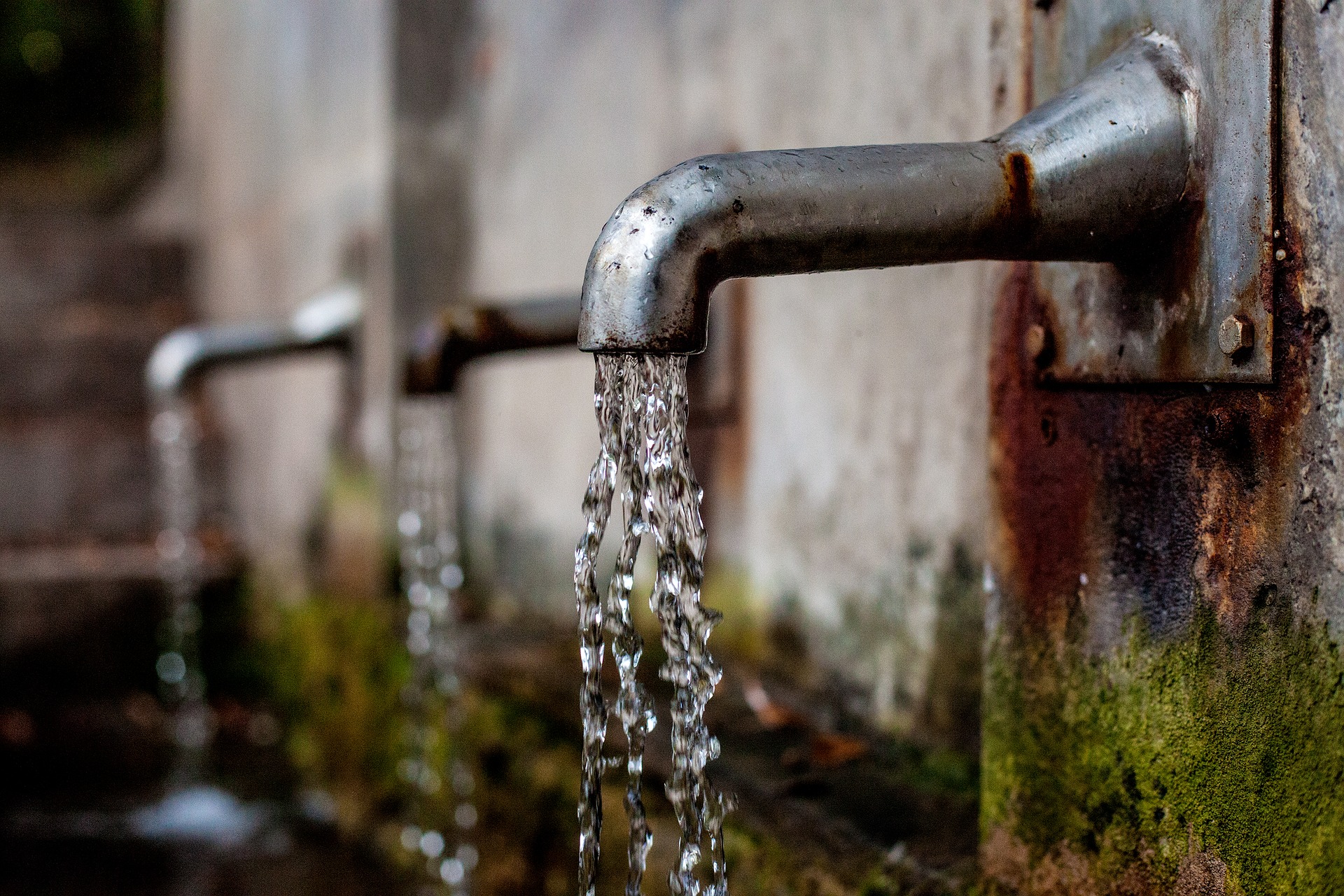
Illustration (credit: Pixabay)
In addition, there are also conditions for wudu that are part of the proper and correct way of performing wudu according to Islamic law. And here are some of the appropriate conditions for wudu, in accordance with Islamic law:
- Being a Muslim
- Being of sound mind and able to distinguish between good and bad
- Being in a state of purity, not menstruating or postpartum
- Not wearing makeup or any other substances that can affect the purity of water
- There should be no objects or substances that can prevent water from touching the skin
- Knowing the difference between recommended (sunnah) and obligatory (wajib) acts
- Using clean and pure water
4. Conditions for Tayammum

Illustration (credit: Pixabay)
Not only wudu, but tayammum also has conditions that are in accordance with Islamic law. And it is one of the proper ways of performing tayammum. The most fundamental thing that allows us to perform tayammum is when we cannot find water around us. Additionally, tayammum is also allowed when we are sick or traveling. The conditions for being allowed to perform tayammum are explained in the Quran, Surah An-Nisa verse 43, which means:
"And if you are ill or on a journey or one of you comes from the place of relieving himself or you have contacted women and find no water, then seek clean earth and wipe over your faces and your hands [with it]."
This verse means that if one is not in any of the mentioned conditions, then Muslims are not allowed to perform tayammum. Therefore, it is still obligatory to perform wudu before praying.
5. Intention for Wudu
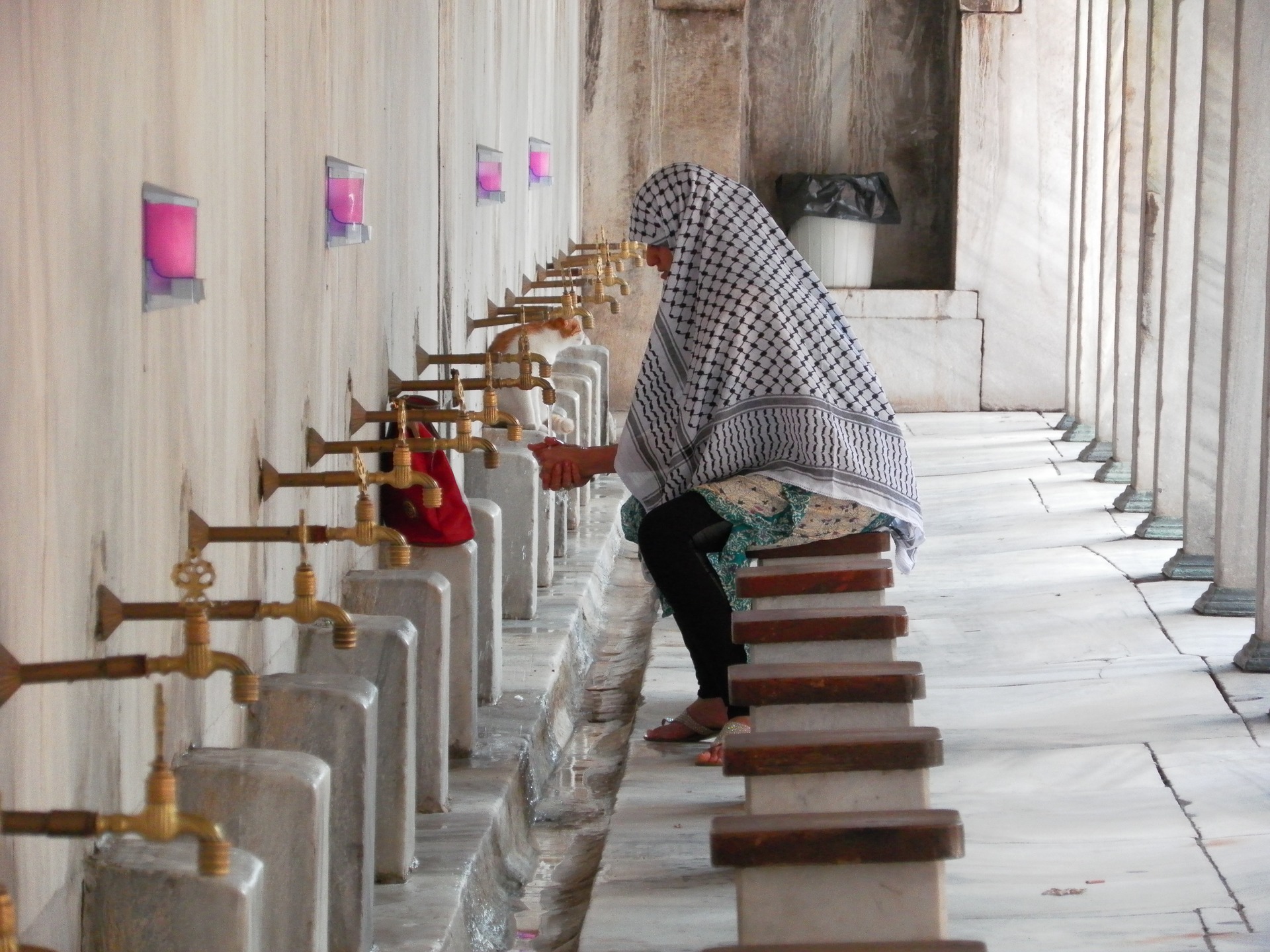
Illustration (credit: Pixabay)
Before performing the ablution, as Muslims, we must first make an intention. This intention is also part of the pillars of ablution, and if it is not done, the ablution will be invalid. And here is the intention before performing ablution:
"Nawaitul wudhuu-a liraf'll hadatsil ashghari fardhal lilaahi ta'aalaa"
Meaning: I intend to perform ablution to remove minor impurities as an obligation for the sake of Allah.
6. Intention for Tayammum
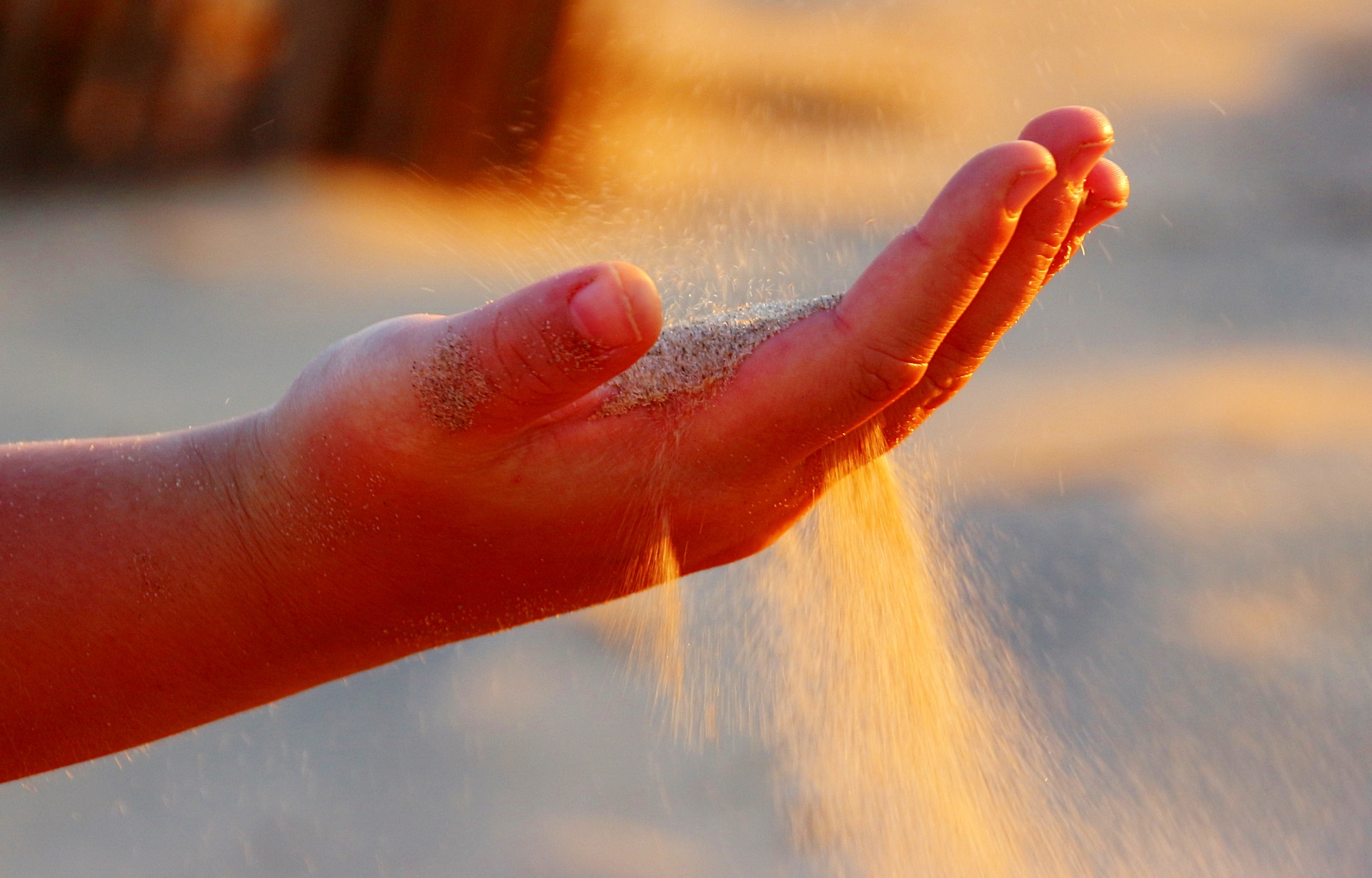
Illustration (credit: Pixabay)
Not only ablution, but tayammum also requires an intention before performing it. Here is the intention for performing tayammum:
"Nawaitut Tayammuma Lisstibaahatish Shalaati Fardlol Lillaahi Ta'aalaa"
Meaning: I intend to perform tayammum in order to be able to perform prayer, as an obligation for the sake of Allah.
7. Procedure of Wudhu

Illustration (credit: Pixabay)
After reciting the intention, we begin by performing the act of wudhu properly and correctly. And here are some procedures of wudhu in accordance with Islamic law:
- Recite Bismillah while washing both palms, the back of the hands, and in between the fingers. Do this 3 times.
- Rinse the mouth 3 times (until it is clean and there are no food residues between the teeth).
- Inhale water into the nose, then exhale it. Do this 3 times.
- Wash the face 3 times. Do this by washing the face evenly.
- Wash both hands up to the elbows, alternating between the right and left hands. Do this 3 times.
- Wipe the head with water 3 times.
- Clean both ears, alternating between the right and left ears. Do this 3 times for each ear.
- The last step of wudhu is to wash both feet, alternating between the right foot 3 times and the left foot 3 times. Wash the feet up to the ankles.
8. Tayammum Procedure

Illustration (credit: Pixabay)
Just like ablution (wudhu), after making the intention, you can immediately perform tayammum. And here are some correct tayammum procedures according to Islamic law:
- Prepare dusty soil or an object with a dusty surface. Make sure the dust is clean and meets the requirements for purification through tayammum.
- Then face the qibla.
- Then say bismillah, and then wipe both palms on the surface of the soil or dusty object with the fingers together.
- The next tayammum procedure is to blow on the palms and then wipe the face while silently reciting the intention for tayammum.
- Place the palms on the soil or dusty object again, but this time with the fingers spread apart.
- Place the left palm on the back of the right hand, ensuring that the fingertips of one hand do not exceed the fingertips of the other hand.
- Wipe the left palm on the back of the right forearm up to the elbow. Then, turn the left palm inward, and wipe it up to the wrist.
- Next, wipe the inner part of the left thumb on the back of the right thumb. Then, do the same for the left hand.
- The last tayammum procedure is to join both palms and rub them between the fingers.
9. Prayer After Wudu
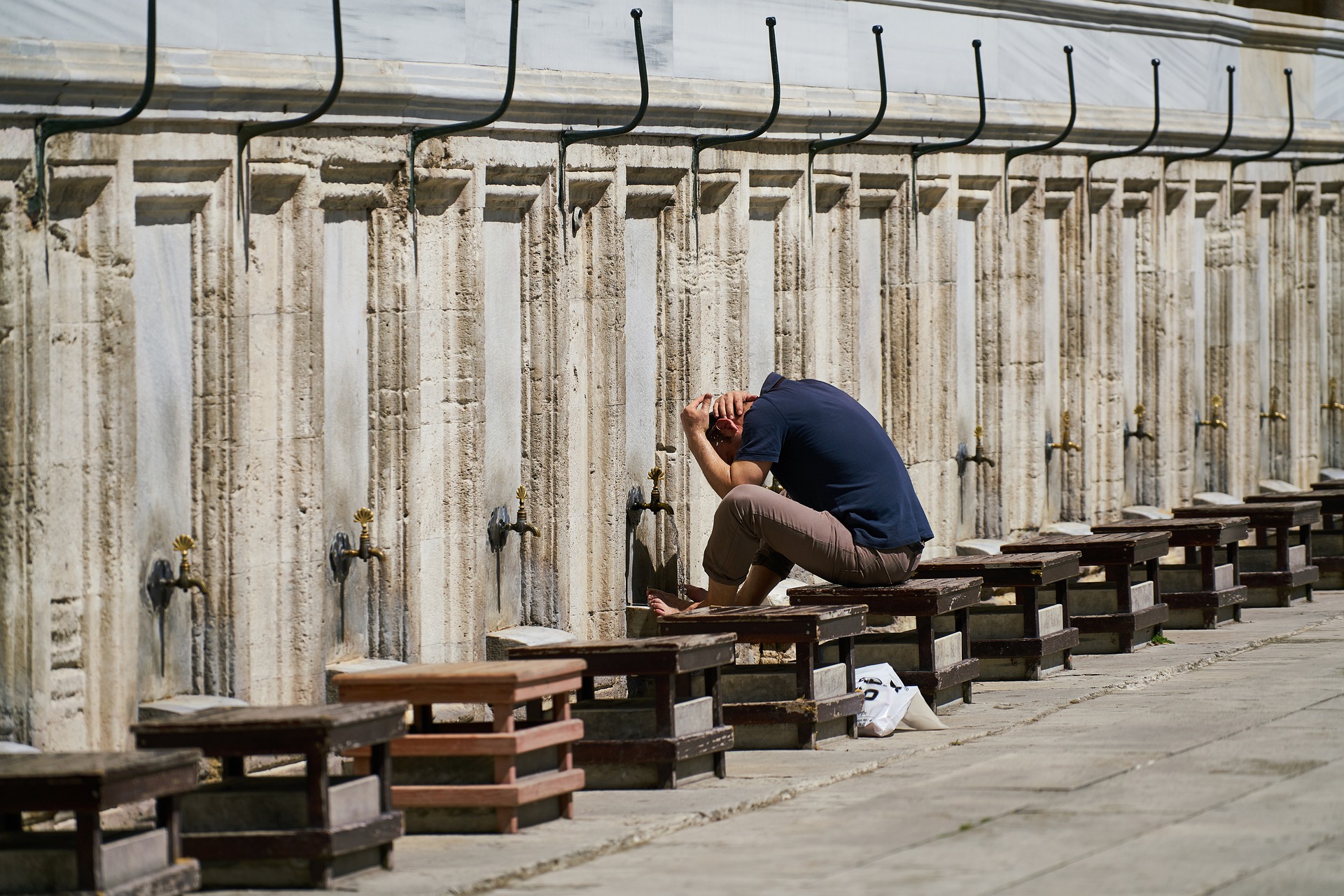
Illustration (credit: Pixabay)
Not only at the beginning of wudu, but after wudu, there is also a prayer that you must do, KLovers. And here is the prayer after wudu:
"Asyhadu Alla Ila Haillallaah Wahdahu Laa Syariika Lahu Wa Asyhadu Anna Muhammadan Abduhu Wa Rasuuluhu, Alloohummaj'alni Minattawwaabiina' Waj'alni Minal Mu Tathahhiriina Waj'alni Min Ibadi Kash Shaalihiina"
Meaning: I bear witness that there is no god but Allah and there is no partner to Him. And I bear witness that Muhammad is His servant and Messenger. O Allah, make me one who repents, and make me one who is pure, and make me one of the righteous servants.
10. Prayer After Tayammum

Illustration (credit: Pixabay)
And tayammum also has a prayer after performing tayammum, just like wudu. This prayer must also be done after performing tayammum. And here is the prayer after tayammum that you can do:
"Asyhadu Allaa Ilaaha Illalloohu Wandahuu Laa. Syariika Lahu Wa Asyhadu Anna Muhammadan 'Abduhuuwa Rosuuluhuu, Alloohummaj'alnii Minat Tawwaabiina Waj'alnii Minal Mutathohhiriina"
Meaning: I testify that there is no god but Allah, the One and Only, with no partner, and I testify that Muhammad is His servant and Messenger. O Allah, make me one of those who repent and make me one of those who are pure (righteous).
11. Things that Invalidate Wudu and Tayammum
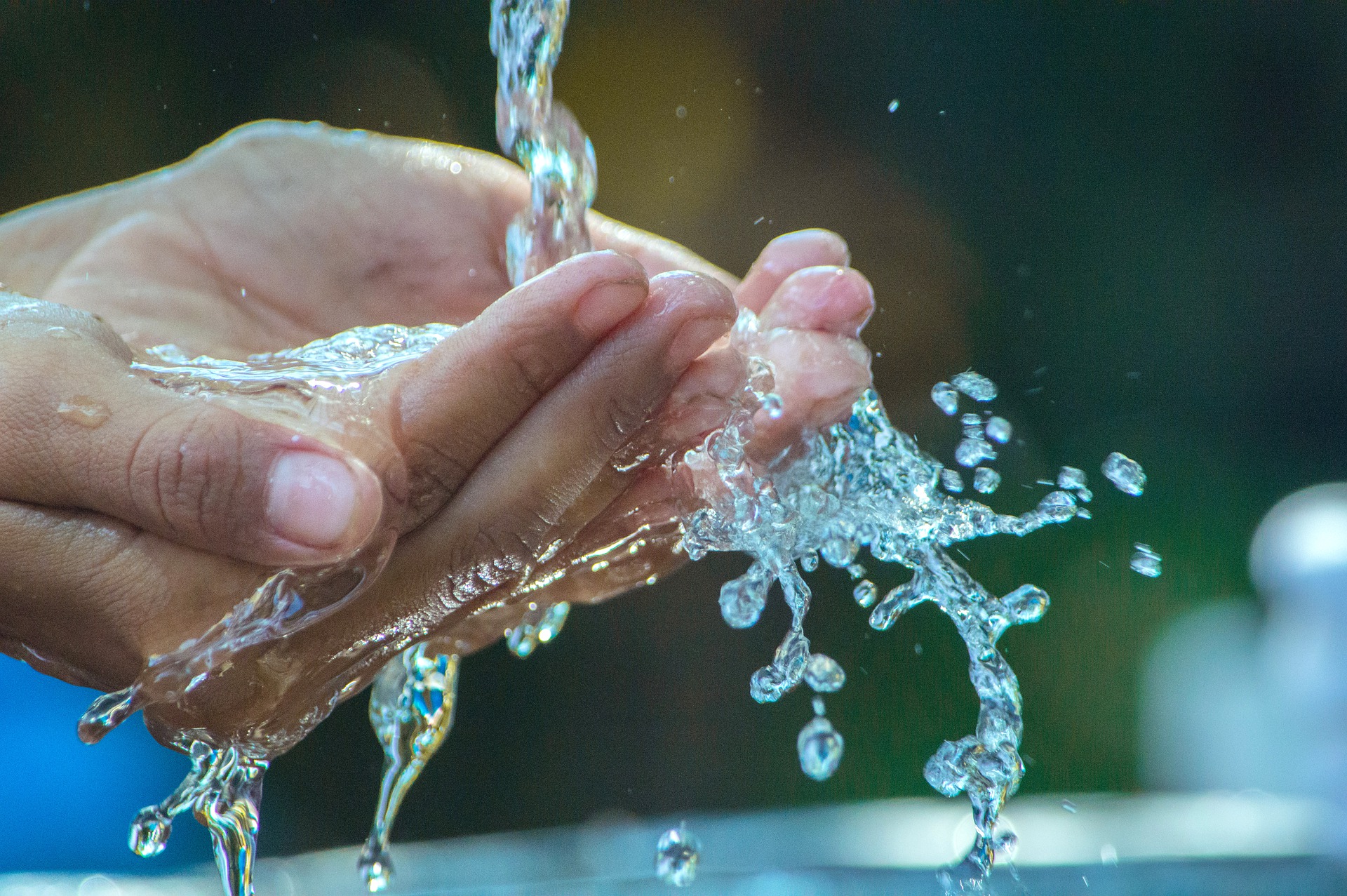
Illustration (credit: Pixabay)
Learning the procedures of wudu and tayammum would not be complete without knowing the things that can invalidate wudu and tayammum. This is important because it can make our prayer invalid. Here are the things that can invalidate wudu and tayammum.
Things that invalidate wudu:
- Losing sanity, sleeping, falling asleep, getting drunk, fainting, or even going insane.
- Passing wind, urinating, or defecating (except for semen, mandatory to perform ghusl).
- Physically touching a non-mahram of the opposite sex.
- Touching the genitals (vagina or anus) with the palm of the hand or fingers without a barrier.
Things that invalidate tayammum:
- All things that invalidate wudu.
- Seeing water that can be used for wudu, apostasy.
- Leaving Islam.
Those are some procedures of wudu and tayammum along with common things related to wudu and tayammum that should be known by all Muslims. Hopefully, it is beneficial and can help perfect your wudu and tayammum.
(kpl/dhm)
Disclaimer: This translation from Bahasa Indonesia to English has been generated by Artificial Intelligence.
